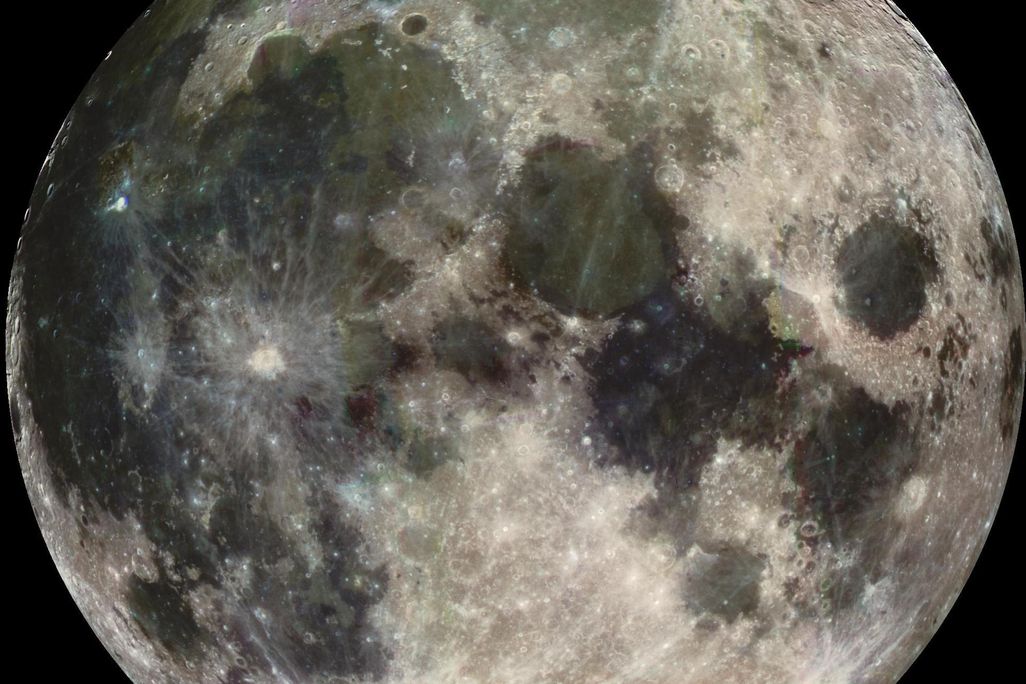Today Will Likely Be Shorter Than Usual, and It Will Happen Again in August. Here’s Why
Because of the moon’s position, Earth is rotating just over a millisecond faster than usual on a few days this summer

For a few days this summer, you’ll be losing some time.
On July 22 and August 5, the Earth will spin a little more than a millisecond faster than usual. July 22 is predicted to be 1.34 milliseconds short of the standard 24 hours, and August 5 may be 1.25 milliseconds shorter. But the shortest day of the year is shaping up to be July 10, which trailed the regular day length by 1.36 milliseconds (though this record is not yet confirmed).
Scientists track these changes using atomic clocks to keep technologies like computers, GPS systems and large telescopes accurate. But they don’t mean much to the average person. “Since we are talking [about] one millisecond, it’s not something you’d notice,” Duncan Agnew, a geophysicist at Scripps Institution of Oceanography at the University of California at San Diego, says in an email to Kasha Patel at the Washington Post.
These shorter day lengths are happening because the moon will be at its farthest angles from the Equator on those days, which weakens the impact of its gravity on Earth. At other times, when the moon is directly in line with the Equator, it pulls on Earth’s tides more strongly, slowing the spin ever so slightly. But in this case, the moon’s distance is causing the Earth to rotate slightly faster.
Fun fact: The shortest day on record
Since the first atomic clocks were developed in the 1950s and 1960s, the shortest day recorded was July 5, 2024, which was 1.66 milliseconds less than the standard 24-hour period.
These fluctuations are seasonal, reports the Guardian’s Petra Stock. The shortest days of the year tend to fall in the summers, around July and August. But the moon isn’t the only thing affecting Earth’s spin—the churning of the inner core and climate changes over time also play a role, among other processes.
“It’s an extremely difficult problem, to untangle the different contributing factors,” says Surendra Adhikari, a geophysicist at NASA’s Jet Propulsion Laboratory, to Jacey Fortin at the New York Times.
Our planet’s rotation has sped up and slowed down at various times throughout history. Since 2020, however, scientists have measured a quickening, but they don’t expect it to last. “There is a general consensus the Earth will slow down again (deceleration will win), but there is a risk that acceleration may be effective for a few decades,” says Oleg Titov, a researcher at Geoscience Australia, to Petra Stock at the Guardian.
Overall, though, the Earth’s rotation has actually been trending slower for a long time, despite these short-term variations. The day length might have been 19 hours for about one billion years during the Proterozoic (2.5 billion to 541 million years ago), and Late Cretaceous dinosaurs might have experienced 23.5-hour days.
So, with all these fluctuating day lengths, how do we reflect that in our timekeeping? Occasionally, scientists will add a “leap second” to Coordinated Universal Time (UTC) to keep our clocks aligned with the Earth’s rotation. Since 1972, 27 leap seconds have been added, with the last one having been added in 2016.
But with more advanced technology, this system won’t be needed much longer—experts have voted to retire it by 2035. “Atomic clocks and our computer networks are the new, far superior form of time measurement, but we’re forcing them to keep in sync with this older form of measurement,” explains David Gozzard, an experimental physicist at the University of Western Australia, to the Guardian.
However, some researchers are considering removing a second from UTC sometime around 2029. That’s never been done before, and the move has its critics. “A negative leap second has never been added or tested, so the problems it could create are without precedent,” wrote Patrizia Tavella, director of the time department at the International Bureau of Weights and Measures in France, in an article for Nature last year. The fear, per CNN’s Jacopo Prisco, is akin to the anxiety around Y2K—that the technologies that govern our lives would not be able to process the change.
While metrologists—or those who practice measurements—around the world weigh the possibility of removing a second, it’s possible that global timekeepers will decide to ban the move before it ever takes place. Or, we will see a day skip a second. And to most of us, that lost time will be imperceptible.
/https://tf-cmsv2-smithsonianmag-media.s3.amazonaws.com/accounts/headshot/Sara_-_Headshot_thumbnail.png)
